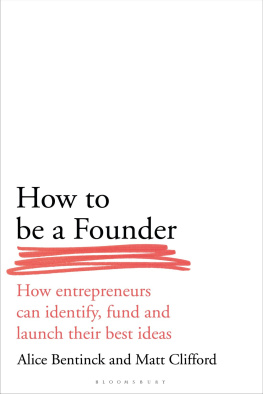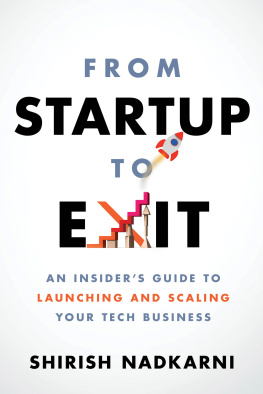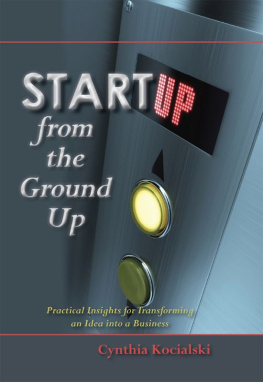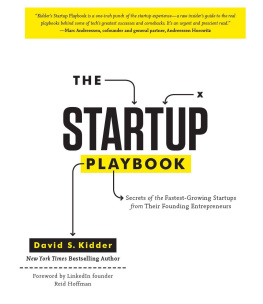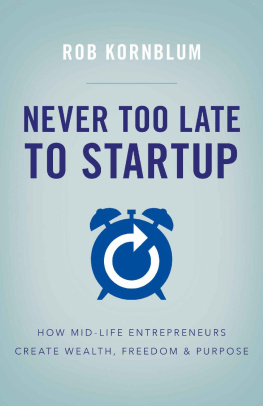Tarun Agarwal - How to Start a Startup: The Silicon Valley Playbook for Entrepreneurs
Here you can read online Tarun Agarwal - How to Start a Startup: The Silicon Valley Playbook for Entrepreneurs full text of the book (entire story) in english for free. Download pdf and epub, get meaning, cover and reviews about this ebook. year: 2016, publisher: PlatoWorks Inc., genre: Romance novel. Description of the work, (preface) as well as reviews are available. Best literature library LitArk.com created for fans of good reading and offers a wide selection of genres:
Romance novel
Science fiction
Adventure
Detective
Science
History
Home and family
Prose
Art
Politics
Computer
Non-fiction
Religion
Business
Children
Humor
Choose a favorite category and find really read worthwhile books. Enjoy immersion in the world of imagination, feel the emotions of the characters or learn something new for yourself, make an fascinating discovery.

- Book:How to Start a Startup: The Silicon Valley Playbook for Entrepreneurs
- Author:
- Publisher:PlatoWorks Inc.
- Genre:
- Year:2016
- Rating:5 / 5
- Favourites:Add to favourites
- Your mark:
How to Start a Startup: The Silicon Valley Playbook for Entrepreneurs: summary, description and annotation
We offer to read an annotation, description, summary or preface (depends on what the author of the book "How to Start a Startup: The Silicon Valley Playbook for Entrepreneurs" wrote himself). If you haven't found the necessary information about the book — write in the comments, we will try to find it.
New startups are created every day around the word, with many founders dreaming of millions of users and billions of dollars. But the harsh reality is that very few will succeed.
How can entrepreneurs stack the odds in their favor? By learning from the experiences of startup founders, executives, and investors whove been there before.
Thats exactly what How to Start a Startup provides, sharing essential lessons from 25+ Silicon Valley insiders whove faced the challenges of starting a new business and come out swinging.
Based on a Stanford University course taught by Y Combinator (the prestigious startup accelerator behind companies like Dropbox and Airbnb), this in-depth reference guide features advice from experts like:
- Reid Hoffman, LinkedIn co-founder
- Dustin Moskovitz, Facebook co-founder
- Paul Graham, Y Combinator co-founder
- Marc Andreessen and Ben Horowitz, co-founders of Netscape and Andreessen Horowitz venture capital firm
- Peter Thiel, co-founder of PayPal and Founders Fund, early Facebook investor
- Ben Silbermann, Pinterest co-founder and CEO
Nominated as Book of the Year by Product Hunt (the leading Silicon Valley community for discovering the best new products), How to Start a Startup reveals the secrets to raising money, building products users love, hiring a great team, getting press coverage, attracting customers, growing your business, and more.
No matter what type of product youre creating (web, mobile, hardware, online-to-offline, etc.) or what audience youre targeting (consumers or the enterprise), this playbook will give you all the information necessary to launch and scale a successful startup.
This book was created independently by the publishers and all net proceeds will go to support charitable causes promoting wider access to opportunity for all.
Tarun Agarwal: author's other books
Who wrote How to Start a Startup: The Silicon Valley Playbook for Entrepreneurs? Find out the surname, the name of the author of the book and a list of all author's works by series.

